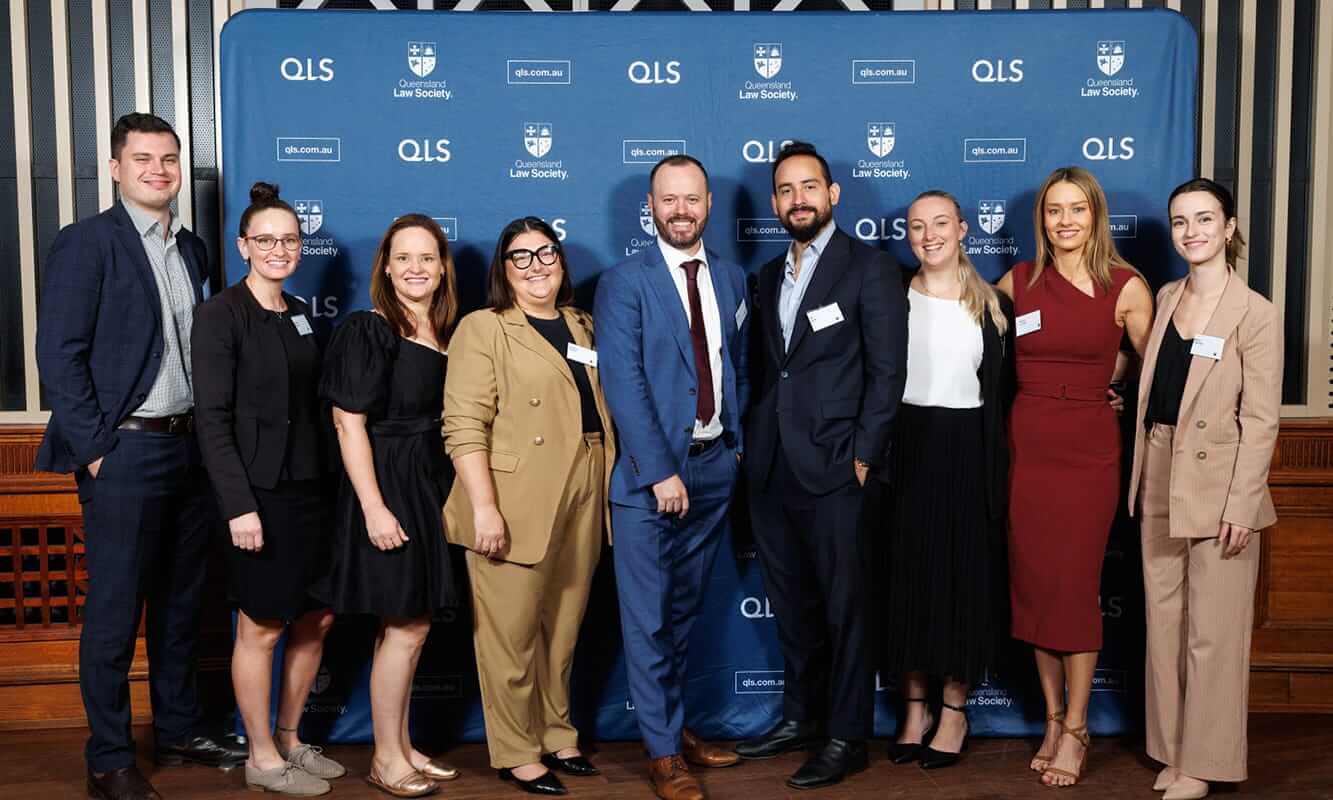The fragrant white smoke that drifted around the Brisbane Convention & Exhibition Centre yesterday symbolised the optimism of the inaugural First Nations Forum.
A smoking ceremony and yidaki sound healing ceremony formed part of the Welcome to Country in the centre’s Plaza Room, where the Federal Circuit and Family Court of Australia (FCFCOA) had gathered stakeholders from around the country.
Yesterday’s smoking ceremony set the scene.
In his opening address, FCFCOA Chief Justice Will Alstergren called the event an “incredibly important day for our courts”.
“By listening to you here, we have the opportunity to continue transforming our courts and our court system into one that truly serves all families with equity, respect and justice,” Chief Justice Alstergren said.
“Put simply, this is not just a legal obligation, it is a moral imperative.
“The ways in which we engage with, and centre, First Nations voices, is a fundamental test of our will as a court, and indeed, I believe, our will, as a country.
“It is a test for our own self-knowledge, of how well we know our history, of how well we conceptualise justice.”
The opening address.
Chief Justice Alstergren said Brisbane (Meanjin), which had the most family law matters involving an Aboriginal or Torres Strait Islander party, was “a good place to contemplate such things”.
Queensland Indigenous Family Violence Legal Service (QIFVLS) Principal Legal Officer Thelma Schwarz proved that statement with her powerful presentation, in which she described her childhood on a remote Torres Strait island and her kinship connections.
Thelma spoke of “the noise of a thriving village” – a site which had no running hot water, no roads and no phone reception – where her extended family of saltwater people would gather happily at a fire and speak in language.
She also spoke of her responsibility to take over the role of head of the village from her mother, when the time came.
“That’s my journey. Some will see it as a burden. I see it as a very proud journey that I take to keep my culture alive and strong,” she said.
Thelma encouraged attendees to embrace their heritage by “leaning into it”.
“My indigeneity, which I’m very proud of, straddles not only here in the Torres, but Papua New Guinea, Samoa, Fiji – that is who I am and I’m very proud of it,” she said.
“I can’t ignore my colour. I can’t ignore my identity. These things are pivotal when we’re shaping discussions around acknowledging culture and taking a cultural lens to creating safe spaces for Aboriginal and Torres Strait Islander peoples, irrespective of whatever system or whatever court we’re navigating.”
QIFVLS Principal Legal Officer Thelma Schwarz.
She said QIFVLS found that in regional and remote areas, 90 per cent of clients were women fleeing domestic violence, with children in tow, and it was important to adopt a “holistic wraparound” approach.
“When you’re tailoring and building and transforming systems to work holistically with Aboriginal and Torres Strait islander peoples, I will also posit that legal is but one side issue,” she said.
“Tailoring a response that takes into account the totality of her journey and her children’s journey sets you up to succeed and ultimately break the cycle of entrapment.”
Thelma said she was excited to see the expansion of the use of Indigenous Family Liaison Officers, and of Specialist Indigenous Lists, by the court.
“Sometimes lawyers have this one-dimensional view that justice means getting an order from the court,” she said.
“Having practised as long as I have now, I can tell you from a First Nations perspective, that is only one element.
“Justice for an Aboriginal and Torres Strait Island person can also include being heard, being treated with respect and dignity, being provided the right support services that set that person up to succeed.”
She said indigenous disadvantage had been amplified in a plethora of reports, which had provided a “heavy-hitting evidence base” for transformational change.
“You can see that nexus with domestic and family violence. You can see the impact of removal of our children from their homes. You can see how our First Nations women describe their interactions with the justice system. You can see the expectation we have when we come into contact with that justice system, that that system protect us and wrap around us and support us,” she said.
Thelma encouraged attendees to “walk with us and design better ways” and to “get comfortable with being uncomfortable”.
“Because if we don’t, this continues to be a reality and gets worse. And we get to a point that it’s just accepted within our communities,” she said.
“I might be the lawyer in my day job, but I’m still that little kid from that a village the kid who grew up with domestic and family violence in the household.
A film about Indigenous Family Liaison Officers
was launched yesterday at the forum.
“The kid who had to push through barriers to get here. The kid who was never meant to succeed. But here I am.
“This is hard stuff. But the reason I do it, and the reason I would posit that many Aboriginal and Torres Strait Islander people joining us today do it, are for these values – dignity, hope, self-determination, having our children growing up strong in community, strong in culture.
“Dare to dream.”
At the First Nations Forum, the FCFCOA launched a short film featuring Indigenous Family Liaison Officers, explaining their role and how they help families and work with community.

















Share this article